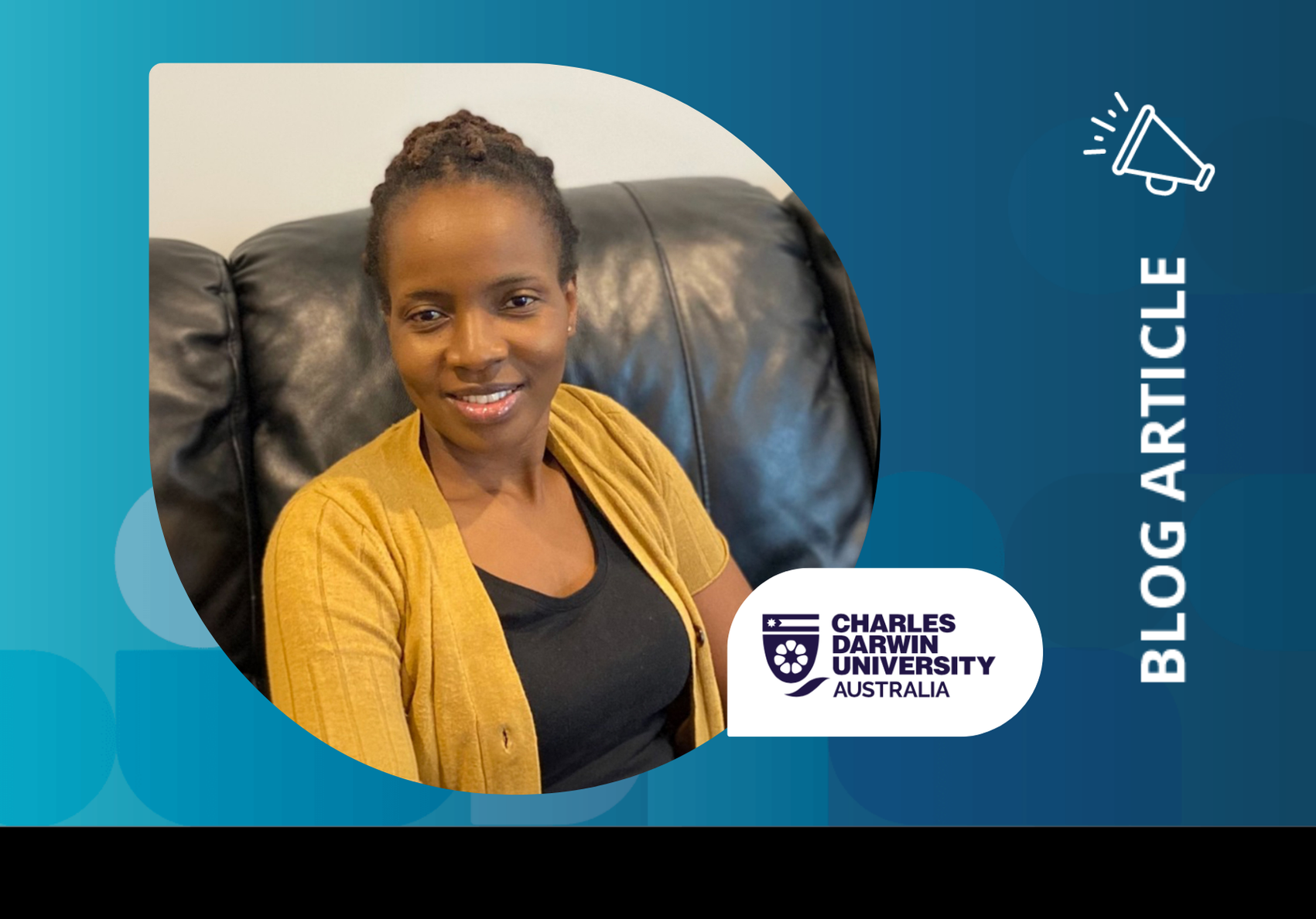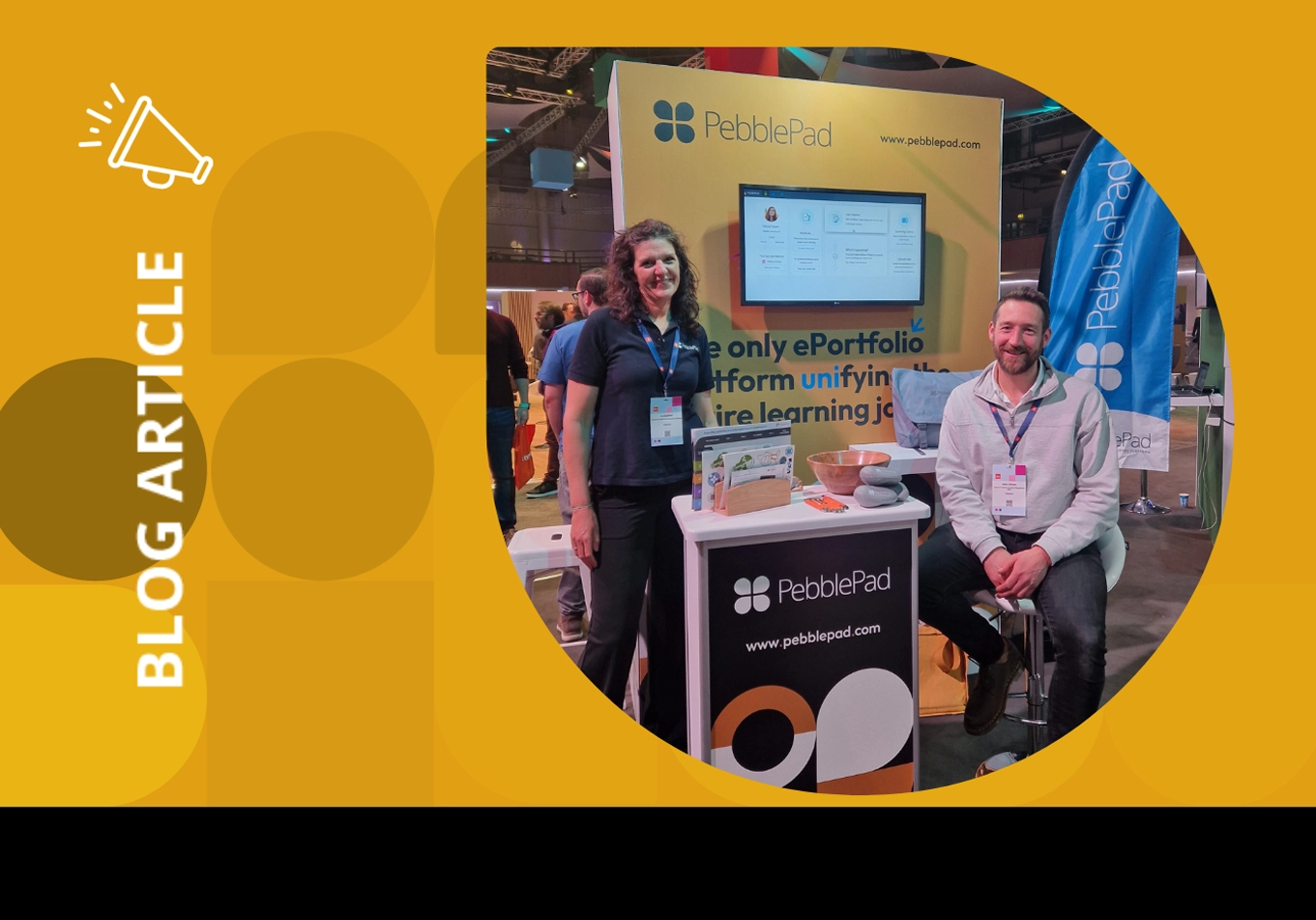In April, I had the privilege of attending the annual UK Advising and Tutoring (UKAT) conference at the University of Greenwich’s magnificent Old Royal Naval College campus. With keen anticipation for the discussions ahead, I joined Claire Weir, one of our seasoned Business Development Managers, for a raft of sessions showcasing best practice in personal tutoring within the higher education sector.
From the outset, it was evident that the conference was brimming with passionate individuals, all sharing a common vision of reinvigorating personal tutoring within their institutions.
Personal tutoring in the spotlight
The theme of this year’s conference was clear: to reshape the landscape of personal tutoring in higher education, placing it at the forefront of strategies for student success across the UK. Five key areas took centre stage:
- Student Voice
- Collaboration
- Student core skills
- Professional development
- Advocacy
These areas align to PebblePad’s goal to support institutions by providing a platform for tutors to stay connected to students and help them reflect on and make sense of their experiences both in and outside the classroom.
Future of personal tutoring
The penultimate session of the conference, titled ‘A Collective Manifesto for the Future of Personal Tutoring,’ led by Michael Talbot of the University of Greenwich, encapsulated the essence of the event.

Image 1: The collective vision of personal tutoring
As you can see from the image above, this session used the collective brain of speakers and delegates to create a vision for personal tutoring. Among the various insights shared, a clear message emerged: personal tutoring is about fostering connections and relationships that support students’ growth and development.
What do we need to do personal tutoring well?
Discussions gravitated towards the challenges of widescale personal tutoring and the key elements necessary for success. The image below highlights some of the issues and challenges facing institutions when implementing personal tutoring without a solid approach.

Image 2: The challenges to effective personal tutoring
From my discussions, the three pertinent points for a successful personal tutoring model can be summarised as:
- Formal recognition and incentives
- Allocation of time and resources
- Training, guidance and support:
These three pillars serve as the foundation for successful personal tutoring practices, emphasising the importance of recognition, resources, and professional development in fostering positive student outcomes.
Linking theory to practice: Case studies in effective personal tutoring
Here are examples shared during the conference that exemplify how institutions are addressing challenges and implementing strategies to enhance their personal tutoring programmes. During the conference we were delighted to share the work of one of our customers, Dr Adelle Bowden – Professionalism programme lead at the University of Nottingham. Dr Bowden’s session focused on her experience of transforming the role of the personal tutor.
University of Nottingham’s embedded approach
Dr. Adelle Bowden, highlighted the successful transformation of personal tutoring in the Veterinary Medicine and Science curriculum at the University of Nottingham. By integrating the role of personal tutor into credit-bearing modules, the university enhanced reflective practice and professional skill development, setting a precedent for effective personal tutoring. It was wonderful to hear how Adelle and her colleagues have been able to embed the role of the personal tutor into credit bearing modules to support the reflective practice and the development of professional skills required by the accrediting body, RCVS. You can learn more about Dr. Bowden’s work on this web page.
Sheffield Hallam University’s drive to understand student diversity
Dr. Sarah Bosch from Sheffield Hallam University gave an insightful keynote on a data-driven approach to supporting personal tutoring. She emphasised the importance of data in understanding student demographics and challenging preconceived notions. By investing time in exploring the diverse backgrounds of students, personal tutors can better tailor their support to individual needs.
Maastricht University’s structured approach to personal tutoring
Iris M. Burks and Oscar van den Wijngaard of Maastricht University shared insights from their journey in transforming academic advising. They highlighted the significance of frameworks like the UKAT: Principles of Accreditation in providing a structured approach to personal tutoring. This was mirrored in the insightful findings from research conducted as part of an organisation wide review of personal tutoring at University College London.
University College London’s UK -wide review of personal tutoring
Dr Kathryn Woods and Peter Fitch from University College London shared data from a review of 19 personal tutoring policies from UK institutions and found such a variety of practice and some cases lack of clarity over the role and highlighted a sector wide problem – Who is responsible for personal tutoring in Higher Education institutes? You can read the full report here: UCL Personal Tutor Review.
Abertay University’s micro-credential approach
Professor Luke Millard shared Abertay University’s innovative strategy to enhance student retention rates by prioritising student success. Recognising the importance of personalised development journeys, Abertay University replaced first-year electives with a suite of micro-credentials. These credentials were designed to empower students to tailor their academic and social experiences within the Abertay community, fostering confidence and setting them up for success. By focusing on individualised pathways, increased student engagement and bolstered retention rates.
University of Greenwich’s journey to professional recognition
Victoria Adkins from the University of Greenwich offered insights into her personal journey towards enhancing personal tutoring practices. Through her participation in UKAT’s Professional Recognition scheme, Victoria underwent a transformative reflection process. She recognised the defensive stance she had unknowingly adopted in tutee meeting preparation, which contributed to perpetuating a negative narrative. Armed with newfound awareness, Victoria now seeks to influence personal tutor practice positively. She advocates for early integration of the tutor-tutee partnership in the curriculum, aiming to foster a supportive and empowering environment for student success at the University of Greenwich.
Final thoughts: The continuing importance of personal tutoring
As someone deeply entrenched in higher education, witnessing the dedication and innovation displayed at the UKAT conference was both inspiring and sobering. Whilst many challenges and concerns surrounding personal tutoring persist, the conference put a spotlight on the importance of personal tutoring to support student wellbeing, belong and success and rightly so.
The importance of professional capabilities, financial pressures, emergence of Artificial Intelligence (AI) and the competitiveness of the job market mean that making sense of learning in relation to the broader learning journey is as important as ever – the reason many vocational courses and apprenticeships have personal tutoring baked in.
Here at PebblePad our mission is to unify the learning journey and in so many of our customer use cases of PebblePad, personal tutors are a vital part in that process. In a world where human connection and support are increasingly vital, the role of personal tutors has never been more significant. PebblePad remains steadfast in our mission to unify the learning journey, ensuring that personal tutoring remains a cornerstone of student success, today and in the years to come.



















